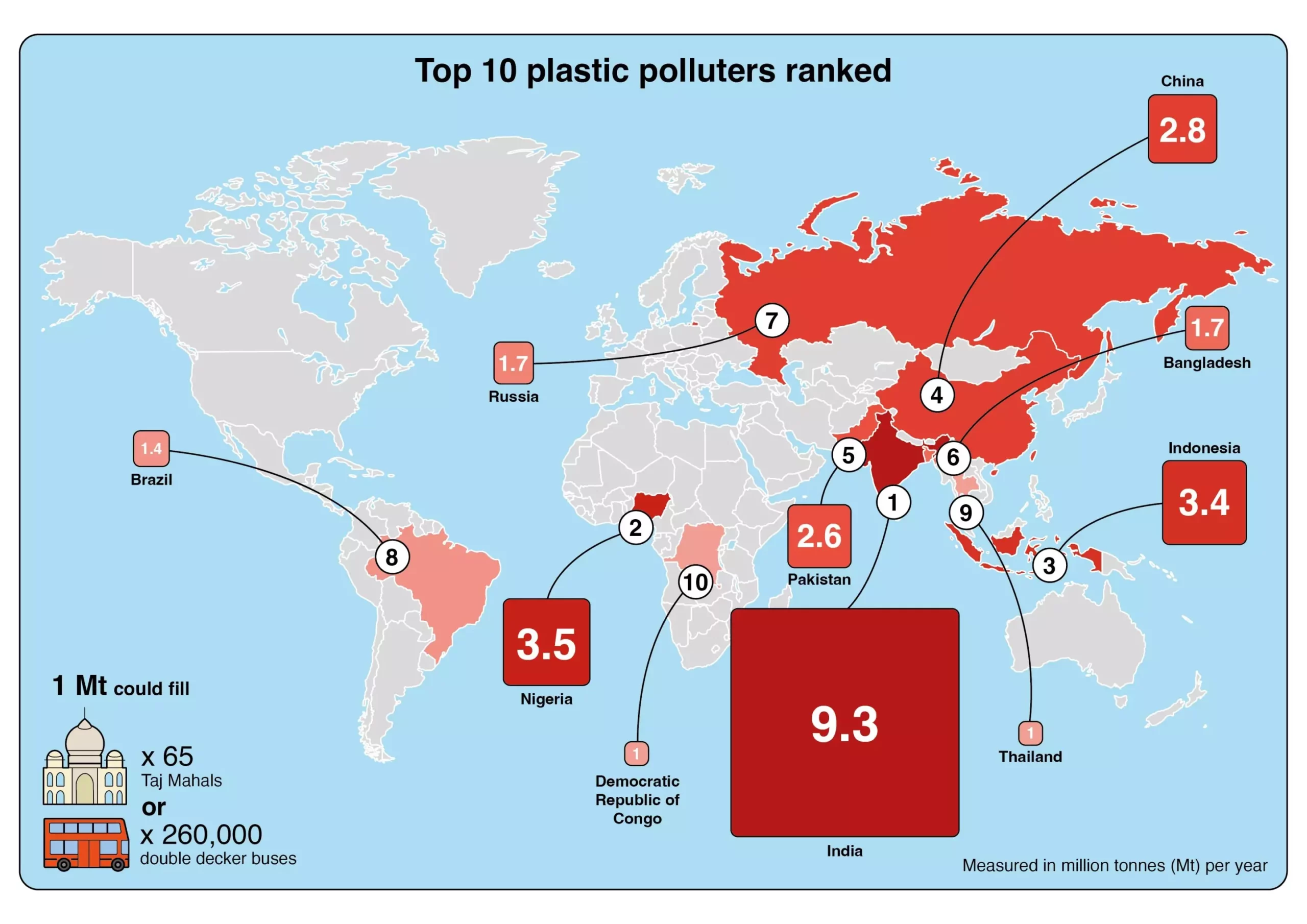The escalating issue of plastic pollution has become a focal point of environmental discussions, particularly in light of new findings from a groundbreaking study conducted by researchers at the University of Leeds. This research, acclaimed for its innovative use of artificial intelligence, constructed a comprehensive inventory of global plastic waste management, revealing alarming statistics about the scale of uncollected waste and the environmentally detrimental practice of open burning. The implications of this study not only highlight the complexity of waste management but underscore the urgent need for systemic changes in how communities across the globe handle plastic refuse.
According to the findings published in the journal Nature, a staggering 52 million metric tons of plastic infiltrated the environment in 2020 alone—an amount so vast that, if laid out linearly, it would encircle the earth more than 1,500 times. This statistic is a harrowing reminder of the global plastic crisis. The research points to unregulated and unmanaged waste as the primary contributor, with over two-thirds of plastic pollution arising from waste that is never collected. The study reveals a shocking reality: approximately 1.2 billion people, constituting 15% of the global population, live in regions devoid of reliable waste collection services.
Even more concerning is the revelation that around 30 million metric tons, representing 57% of all plastic pollution in 2020, was incinerated without environmental controls. This practice poses serious health risks to communities—risks that include neurodevelopmental issues, reproductive complications, and birth defects, primarily affecting vulnerable populations who lack the means to manage their waste responsibly. These insights challenge the longstanding notion that incineration is a preferable alternative to landfilling, particularly in regions where open burning is commonplace.
Previous models predominantly implicated China as the foremost contributor to plastic pollution. However, the findings from Leeds University have tilted that narrative, identifying India as the largest source, followed by Nigeria and Indonesia. The shift speaks volumes about the nature of waste management systems and their effectiveness worldwide. Countries in the Global South, especially with burgeoning populations and inadequate infrastructure, present a stark contrast to higher-income nations, where plastic waste management is considerably more sophisticated.
The Global North vs. South: An Unequal Burden
A perplexing dichotomy surfaces when comparing the plastic waste management capacities of the Global North versus the Global South. Despite high rates of plastic consumption in wealthier nations, they experience relatively lower levels of macroplastic pollution due to effective waste disposal systems. On the other hand, Sub-Saharan African countries, while currently yielding lower overall plastic pollution rates, are emerging as potential hotspots when considered on a per-capita basis. Projections suggest that without intervention, this region could evolve into a significant contributor to global plastic pollution in the coming decades.
Dr. Costas Velis, who led the research, emphasizes the dire need for increased attention towards improving waste management systems. He argues that waste collection should be considered a fundamental human right, akin to access to clean water and proper sanitation. The implications of this research extend to policymakers who must prioritize comprehensive waste management strategies and promote sustainable practices to mitigate the plastic crisis. A proposed solution includes the establishment of a legally binding global ‘Plastics Treaty’ that would hold nations accountable to stringent waste reduction and management standards.
The widespread implications of the research findings raise vital questions regarding responsibility and accountability in managing plastic waste. As communities grapple with the realities of pollution, there is an urgent call for global action to address the pressing health risks associated with mismanaged waste. The need for innovative waste management practices that balance health, environmental integrity, and social equity has never been more pronounced. The study from the University of Leeds serves as a clarion call for regional and international collaboration to confront one of the most significant environmental threats of our time. Through unity and proactive measures, it is possible to transform the narrative around plastic pollution and cultivate a healthier planet for future generations.


Leave a Reply